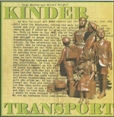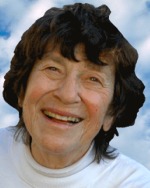 |
 |
|
 |
THOUGHTS
WHILE WALKING THE DOG |
||||||||||||
  Bottom Bottom |
Mother Wins the Game |
7/3/2009 |
Issue: 10.06 |
||||||||||
|
This was the late forties when most women’s only glimpse of the world beyond their backyard was when their husbands gave them an evening out. During golf season, my father never appeared before nine at night unless there was a hurricane or death threatening electric storm no matter how much he knew he would anger his wife. Her bitter words couldn’t dull my father’s euphoria when he returned triumphant from eighteen holes on the links. The night that my father pulled in our driveway at 10:30 p.m. transformed my mother’s passive resistance into fierce assault. The dinner dishes were done and my mother was on the telephone complaining to my Aunt Hazel when Daddy greeted her. He smiled. ”How’s my honey?” he said and leaned over to kiss her. My mother bent her head so his lips grazed her shoulder and continued her conversation. “Fine, Hazel,” she said. “Be here at ten and we can drop the girls off at the pool after we go shopping.” She hung up the telephone. “What’s your excuse this time,” she asked my father. My father cleared his throat and pasted a concerned look on his face. “Joe Aronson had a heart attack on the twelfth hole,” he said. “I see,” said my mother. “And you continued playing while you dragged Joe along with you until he died on the seventeenth.” My father looked shocked. “How can you say a thing like that!” he exclaimed. “Joe is my dearest friend. We called an ambulance immediately.” My mother opened a bottle of nail polish and began her nightly manicure. And she waited. “They had to clear the course before we could look for someone to complete the foursome,” he continued. “By the time we got started again, it was after seven.” My mother glanced at the clock. “It is almost eleven o’clock,” she said. “Your dinner has congealed.” “That’s okay, honey,” said my father. “I ate at the club.” The next morning, after Daddy left for the office my mother called my sister and me into the kitchen. “Get dressed,” she said. “We are buying all three of us tennis dresses.” “Why?” I asked. “I hate competitive games and Marsha is only three years old. I’ve never seen you do anything more athletic than vacuum the living room rug.” My mother ignored me and left the kitchen to get ready. In about a half hour, my Aunt Hazel walked into the kitchen. She was laughing. “I don’t know where you get your ideas, Ida,” she said. “But this one is pure genius.” My mother blushed. “I thought so,” she said. “You won’t mind having us over all week?” “Not at all,” said my aunt. “I thought we were planning to play tennis,” I said. My mother winked at my aunt. “I haven’t told them yet,” she said. We all got in Aunt Hazel’s car and drove to the most exclusive shop in Toledo. Their price for a pair of stockings was more than my mother had ever spent on me for a winter coat. In a shockingly short time, Marsha, my mother and I had tried on at least one hundred different tennis costumes, each more expensive than the one before. The sales lady fitted me in a short skirt, little half socks with tassels and recommended we buy several crisp, white middy blouses, “One needs to change often if the sun is hot,” said the sales lady. ”Sweat is SO unattractive.” My mother’s outfit was a one piece cotton shift with ribbon embroidery, several pairs of sheer hosiery and white leather shoes that were so pointed they would mangle her toes should she attempt to chase the ball. Her bodice was so tight, her face turned a bright purple when the sales lady zipped it up. “You look smashing!” said my aunt. “Good, “ said my mother. “We’ll take three outfits for each of us,” she said. “Three?” I exclaimed. “Are you planning to enroll us in the Labor Day Open?” “Of course not,” said my mother. “We are going to spend all week at your Aunt Hazel’s teaching you monopoly.” “I see,” I said but of course I didn’t see at all. I was far too young to understand that my mother had declared war and we were purchasing her weapons. We never wore our fancy garb on any tennis court. We put them on to return home after an evening of parlor games with my aunt and her two daughters. The first night, we got home at nine and Daddy arrived a half hour later. The kitchen was dark; the bedroom door was closed. “Where is everybody?” called my father. No answer. I heard his steps on the stair and went back to my book. The next evening, Daddy’s car was in the drive when we came home. My mother was a fast learner. The following Monday, my father was waiting for us when we arrived home. “I was here at six,” he said. “Where were you?” My mother smiled. “We stopped at Hazel’s after our game,” she said. “The girls are getting quite good at this. You ought to stop at the courts to watch them.” “I didn’t want to be late for dinner,” said my father. “You know how angry you get if . . .” “That was before tennis,” said my mother. “I haven’t eaten,” said my father. “There’s peanut butter in the cabinet,” said my mother and disappeared into their room. “Are we going to eat at Aunt Hazel’s all summer?” I asked my mother the next day. My mother shook her head. “Just the rest of this week,” she said.” That should do the job.” “What job?” I asked but my mother didn’t answer me. That Friday, my mother nodded to my waiting father and said, “I’ll bet you’d love a decent dinner, for a change. They don’t make anything but fast food at the club.” My father smiled and nodded. “Oh boy would I!” he exclaimed. My mother nodded. “I’ve decided to stop our lessons for a while,” she said. “We’ll be eating at 6 tomorrow night.” And at 5:30, my father was home. “Did you leave the game early?” asked my mother. My father nodded. “I was hungry.” “I bet you were,” said my mother. Later, when the two of us were doing the dishes, I said. “It looks like you won,” and she shook her head. “This is only one battle,” she said. “But I will win the war when I show your father the bill for our clothes.” And she thought victory was indeed hers when my father began leaving the house at 5:30 in the morning to get in a game before his office opened at nine. “I’m not getting up to make breakfast at that hour,” warned my mother. “I don’t expect you to,” said my father. “The chef at the club does eggs Benedict and his pancakes are really superb.” “I didn’t know you liked eggs Benedict,” said my mother. “I don’t, the way you make them,” said my father. “Yours are too runny.” He kissed my mother’s angry face and shouldered his golf bag. “Dinner at 6?” he asked and my mother nodded. “Have a good breakfast,” she
hissed as my father exited whistling. “I will!” he said and drove to the
club. See Lynn Ruth's website |
||||||||||||
|
Subscribe (free) to the Gantseh Megillah. The Gantseh Megillah and GantsehMegillah.com are designed and hosted by HannaVisioN






 Remember, all men would be tyrants if they
could.
Remember, all men would be tyrants if they
could.







 Printer
friendly page
Printer
friendly page